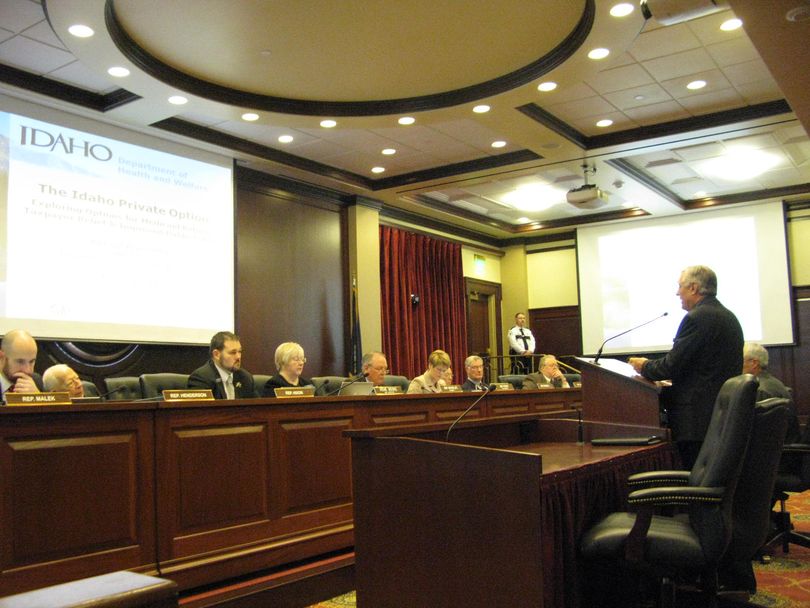H&W chief explains ‘private option’ to lawmakers, would use Medicaid expansion funds

Idaho currently has about 77,000 able-bodied adults who can’t afford health insurance and have no options to help them get it today, state Health & Welfare Director Dick Armstrong told the House Health & Welfare Committee this morning, and one way to address the problem would be through what he called the “private option” – accepting federal Medicaid expansion funds, but instead of using them to expand Medicaid, use them to buy private insurance for those people, who make too little to be eligible for federal subsidies to buy insurance. “Other states have gone through demonstration waivers and been approved for this approach,” Armstrong said. Arkansas and Iowa have been approved; Pennsylvania is nearing approval. Waivers are good for five years; then they need to be recertified.
Armstrong said the idea is to use the state health insurance exchange, through which the state Department of Health & Welfare would directly pay the insurers. Silver-level plans would be purchased. “We’re looking at a free-market approach that will provide medical coverage to low-income people in Idaho, and it’s using the insurance exchange, the Idaho state-based insurance exchange, as the vehicle for providing these policies to the individuals as opposed to running the coverage through our … Medicaid claim adjudication system,” he said. “So this is truly setting these individuals aside into the private market.”
Advantages include that health care providers would be paid at a higher rate, Armstrong said, so more likely would be interested in participating. That’s because Medicaid pays “roughly 50 cents on the dollar,” while private plans, even with deep discounts, pay 58 to 72 cents. Plus, he said, it would allow Idaho to eliminate its current catastrophic and medically indigent care program, which he said “really is a very dysfunctional product.” That program is funded 100 percent from state general funds and local county property taxes.
Armstrong said the state and counties are spending about $53 million a year on that program now, and it’s expected to rise to $92 million by 2020. “We could save between 90 and 95 percent of the costs,” Armstrong said. “With the private option, we would discontinue the county indigent program altogether.”
Committee Chairman Fred Wood, R-Burley, noted that the presentation was held in the Lincoln Auditorium this morning to allow people from across the state to watch via video streaming. While raising various questions, Rep. John Rusche, D-Lewiston, told Armstrong, “I’d like to congratulate you and your staff for looking at creative ways to provide coverage for this population.”
